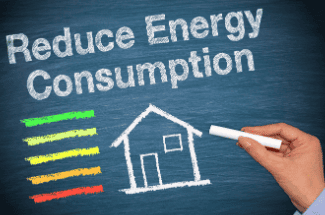The Farmer in the Dell Didn’t Drink Bottled Water
by Louisa May
 The farmer in the dell, of children’s song fame, didn’t drink bottled water. He didn’t have the choice. His drinking water probably came from a well, and so does mine. Living just outside the city limits, I have a well on my property.
The farmer in the dell, of children’s song fame, didn’t drink bottled water. He didn’t have the choice. His drinking water probably came from a well, and so does mine. Living just outside the city limits, I have a well on my property.
The water has been tested and is fine to drink. But I don’t like the taste, so I buy bottled water. Until recently, that is. I’m rethinking this. The decision is troubling, not only because I’m not being “green”. It’s politically troubling, and I am not a politician.
There’s an underlying issue, one that is suddenly much in the news, revolving around our economic freedom and the importance of choice.
In some ways, options abound. Reverse osmosis water filtration systems are becoming more popular and are reasonably priced at Costco for just under $300.00 with replacement filters running $8.99. The systems can be installed right under the sink. Benefits include the reduction of chemicals in the water and improved taste. Or we can buy reusable bottles and fill them with tap water (and live with the taste) before we go out for a hike.
Environmentalists have been campaigning against bottled water for years, not just because of the oil used up in transporting and manufacturing bottles. It’s the extra waste these empty bottles create.
This sounds like a question from Alice in Wonderland, but do you know how much water it takes to make bottled water? If a container holds one litre, it requires three to five litres of water in its manufacturing process. Okay, this information gives me pause as I contemplate whether to run out for more bottled water.
Then I began reading about the City of Chicago starting a five cent tax on plastic water bottles last January. Exchanging my “green” garb for American colonial costume, I remembered America’s tumultuous history of protests over taxes. Who can forget the ire of John Hancock and the infamous rabble rousers’ Boston Tea Party? And there was John Adams, who sparked public outrage over the British Stamp Act of 1765 (repealed) and the British Parliament’s telling the colonists they had “virtual representation”. Another phrase still in use today (and currently on license plates in Washington D.C) is one that shifts like the wind in meaning, and popular with the Patriots in the 1760’s and 1770’s, “taxation without representation.”
Using the logic of the British rulers of the American colonies as my guide, I assumed that Chicagoans were paying this tax to share a portion of costs associated with the disposal of these bottles. But according to a June 18, 2008 article in the Chicago Sun-Times, the tax was aimed at easing the city’s overall budget crunch. The report also states that the bottled water tax is not profitable in Chicago. The tax is netting only 46 percent of the 10.5 million dollars projected for the first five months of this year.
And at the US Conference of Mayors 76th Annual Meeting in Miami, Florida held June 20-24, 2008, a majority of 250 mayors voted to phase out, where feasible, government use of bottled water and to promote the importance of municipal water. Are all of these mayors environmentalists, or is there another agenda? An industry group present called this vote “sound-bite environmentalism”.
So the point is, we can over-legislate “going green”. I know people who might have made many a “green choice” on their own, but they rebel at being told what to do. Just to make a statement, they make environmentally wrong choices on purpose.
I admit I’ll probably give up buying bottled water, but sometimes I wish I were the farmer in the dell.
Check out our Green Pages for information on money saving tips that help the environment. Once there, click on the Green Forum to see more articles by our green feature writer Louisa May.
American Apartment Owners Association offers discounts on products and services related to your commercial housing investment, including real estate forms, tenant debt collection, tenant background checks, insurance and financing. Find out more at www.joinaaoa.org.
To subscribe to our blog, click here.















 Accessibility
Accessibility